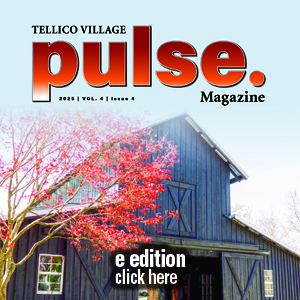Town workshops Impact Fees to a packed house
A crowd of developers and others in the real estate industry gave many sharp criticisms, questions and suggestions to Gary Palmer, Town assistant administrator, as he spoke about a potential Impact Fee during a workshop Thursday, May 5, in the Community Room at Town Hall.
“This is exactly what we’re looking for,” Palmer said at the end of the meeting.
“You want people to show up and you want people to make comments,” he said in a later interview.
“It’s a Property Tax,” Alderman Bob Markli, president of Markli Home Builders, said during the meeting.
“It’s discriminatory, exclusionary, basically illegal, highly controversial, retrograde, nonsensical. It’s the wrong way to go for Farragut. With as many smart people as we have in the town of Farragut, I am positive we can do better than this,” he said after the meeting.
Victor Jernigan, real estate investor, said Impact Fees could be considered discriminatory under the Disparate Impact Supreme Court ruling of 2015. He also said a study had shown Impact Fees change what a town wants to accomplish, leading them to take on more projects.
“With a never-ending situation of discriminatory action against people who want to move into your community, it is a situation in which the city basically says, ‘If you are not wealthy, you are not welcome in our community,’” he said. “They want to punish people who move in because they want them to pay for the roads.” He said the Town should be ready for an upcoming lawsuit if they pass the Impact Fee.
Richard Levenson, chair of the Knoxville Area Association of Realtors Governmental Affairs Committee and real estate agent with RE/MAX Preferred Properties Inc., said Impact Fees on commercial developments might hurt Farragut.
“We’ve got to be kissing them to come here,” he said. “This fee just does not float.”
Tony Clancy, Richard Levenson and Jennifer Roche, Governmental Affairs director at KAAR, all spoke in favor of bonds rather than an Impact Fee as a way to fund roads and transportation costs.
Alderman Ron Pinchok said the fee would not be that big of a change for Farragut.
“An impact fee or a corridor fee … has been around for years,” Pinchok said.
Palmer said the adoption of an Impact Fee ordinance “will provide certainty to the development process so that expectations are known on the front end and applied in the same manner to all developments.”
“To not grandfather existing lots already platted blows this argument away,” Russell Rackley, president of Rackley Engineering, said.
Palmer’s presentation addres-sed questions asked from the last meeting and posed by e-mail.
During the last Impact Fee workshop March 31, Rackley criticized the proposal for including road, curb, gutter, pedestrian and bike routes.
Palmer said the proposal reflected the Town’s standards.
“These standards are one of the reasons that the Town is deemed as a desirable place to live and conduct business,” Palmer said.
Palmer said costs for road improvements would be credited against the calculated Impact Fee and that an Impact Fee ordinance would eliminate the need to negotiate road improvement cost-share agreements with the Town.
He said the fee would be based on density of development and traffic impact rather than the price of the housing units.
Roche countered that it would take away developers’ choice to build denser developments.


